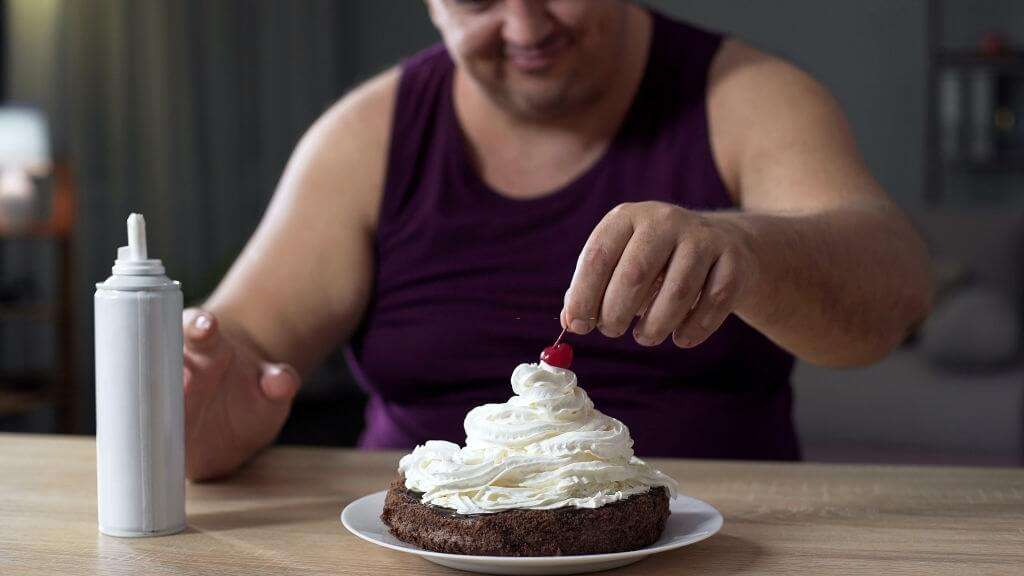Okay, so you just found out that you might have accidentally cooked plastic with food and are wondering what to do… Relax and don’t be too hard on yourself, you’re not the first to make that mistake, especially if it had anything to do with cooking meat and plastic wrappings or absorbent pads.
A fair number of hotline inquiries regarding cooking mishaps tend to be concerning this matter, so you are not alone in this. The advancement of different types of plastic containers and wrappings in the culinary world and their availability in every household makes such accidents more likely to occur.
Whether you mistakenly overheated a plastic container or forgot to remove the plastic wrapping before turning on the heat, now that you’re here let’s take a look at what you should do after accidentally cooking plastic with food and what it could mean for you.
Accidentally Cooked Plastic with Food? Here’s What to Do
STOP PANICKING… This is truly the first thing to do if you realize you accidentally cooked plastic with food. Panic clouds your judgment and may trigger other things like your blood pressure if you’re hypertensive, or even lead to a panic attack.
Remember that any plastic approved for use with food is non-toxic and of a safer quality than other types of plastic. The most probable harm that could befall you would be to choke on the piece of plastic but that is rather unlikely.
The next thing to do if you haven’t eaten the food already is to check how much plastic got into the food and if it can be separated. This should be relatively easy to do as plastic doesn’t completely melt at most of the temperatures, we cook at but become softened.
If the amount of plastic is negligible and does not change the aroma or flavor of the food in any way, simply remove it from the food and discard it. On the other hand, if a large quantity of plastic melted into the food or the food’s aroma or fragrance has changed, discard immediately.
For absorbent pads from meat trays that are accidentally cooked with food, inspect the absorbent pad to check if it is torn or open in any way. If it isn’t, your food is most likely safe to eat, but if the absorbent pad is open or torn in any way no matter how small, discard the food immediately.
Health risks associated with cooking plastic
When plastic is heated, it can release chemicals that can leach into the food. These chemicals, such as bisphenol A (BPA) and phthalates, have been linked to a range of health risks. BPA is an endocrine disruptor, meaning it can interfere with the body’s hormonal balance, potentially leading to negative effects on reproductive, neurological, and immune systems. Phthalates have been linked to similar health risks, including developmental and reproductive abnormalities.
Research has shown that the risk of exposure to these chemicals increases when plastic is exposed to high temperatures or acidic foods. This is because heat and acidity can cause the plastic to break down, releasing more chemicals into the food.
The health risks associated with consuming these chemicals vary based on the amount and type of plastic that was consumed, as well as the individual’s age and health status. Long-term exposure to these chemicals has been linked to cancer, obesity, diabetes, and other health problems.
It is important to act quickly when plastic has been accidentally cooked with food, as the longer the plastic remains in contact with the food, the more chemicals are released. Taking steps to remove the plastic from the food and discarding contaminated food can help reduce the risk of exposure. Additionally, taking precautions to avoid cooking with plastic in the first place can help prevent exposure to these harmful chemicals.
Steps to take when you’ve accidentally cooked plastic with food
If you accidentally cook plastic with your food, it’s important to take immediate action to minimize exposure to the chemicals that can leach from the plastic. Here are some steps to take:
Removing the plastic from the food
- First, turn off the heat source to prevent further melting or absorption of plastic.
- Then, use tongs or a spatula to carefully remove any visible plastic from the food. Be sure to discard the plastic immediately.
- If the plastic has melted and mixed with the food, you may need to cut off the section of the food that is contaminated.
Assessing the extent of the contamination
- Look for any small plastic particles that may have mixed with the food. These can be difficult to spot, so be thorough.
- Check the cookware or utensils for any remaining plastic. If there is any plastic left, discard the cookware or utensils immediately.
- Consider the type of plastic and temperature to determine potential risks. For example, plastic containers that are not microwave-safe are more likely to leach chemicals when heated.
Discarding contaminated food
- Once you have removed the plastic and assessed the extent of the contamination, discard any food that has been contaminated. Do not compost or feed it to pets.
- If the contaminated food is a small portion of a larger dish, you may be able to salvage the rest of the dish by removing the contaminated section.
Cleaning cookware and utensils
- Wash the cookware and utensils with hot soapy water. Be sure to use a scrub brush to remove any remaining plastic.
- Use baking soda or vinegar to remove any residual plastic. These substances can help break down the plastic so that it can be easily removed.
- Avoid using abrasive or harsh chemicals that may damage the cookware or utensils.
Ways to prevent this from happening again
- Be mindful of packaging and remove it before cooking. This is especially important for items like frozen dinners that may come in plastic containers.
- Use appropriate cookware and utensils for high-heat cooking. Avoid using plastic containers or utensils when cooking over high heat, as this increases the risk of the plastic leaching chemicals into the food.
By taking these steps, you can help minimize your exposure to harmful chemicals and prevent accidental plastic contamination in the future.
What to do if you’ve already consumed food that was cooked with plastic
If you’ve already consumed food that was cooked with plastic, it’s important to be aware of potential signs and symptoms and know when to seek medical attention. Here’s what you should do:
Signs and symptoms to look out for
- Nausea and vomiting
- Diarrhea
- Headache
- Dizziness
- Fatigue
- Difficulty breathing
- Skin irritation or rash
When to seek medical attention
- If you experience any persistent symptoms or are concerned about potential exposure to harmful chemicals, it’s important to seek medical attention.
- Be sure to provide your doctor with information about what you ate, how it was cooked, and what type of plastic was involved, if known.
- Depending on the severity of the symptoms, your doctor may recommend additional testing or treatment.
It’s important to note that the health risks associated with consuming plastic chemicals depend on the amount and type of plastic that was consumed, as well as the individual’s age and health status. While it’s always best to take precautions to avoid exposure to these chemicals in the first place, taking immediate action and seeking medical attention if necessary can help reduce the potential health risks associated with accidental plastic contamination.
Accidentally Burned Plastic on Stove? What to Do
It’s easy to find yourself forgetting that your stovetop is hot and leaving plastic unattended on it. The result is usually melted plastic that can ruin your kitchen experience if not properly taken care of. Here’s how to get rid of plastic accidentally burned on a stove.
Using Baking Soda and Vinegar
- Make sure the stove is turned off.
- Pour a generous amount of baking soda on the melted plastic, completely covering it.
- Using a spray bottle, spray some vinegar on the baking soda until it is completely soaked.
- Scrub with a scouring pad for a few seconds.
- Spray some more vinegar on it.
- Continue to scrub with the scouring pad until the plastic comes off.
- Clean with a microfiber towel
The melted plastic will come off easily from your stove using this baking soda and vinegar method, you can watch a video tutorial of how to use this method here:
Other Ways to Get Rid of Burned Plastic from Stove
One way is to reheat the stove so that the heat softens most of the plastic, then you can scrape it off gently using a putty knife and proceed to clean up any residue with an oven/stove-top solvent agent. All that is left thereafter is to clean the stove using soapy detergent and a microfiber towel.
Another way is to apply a degreasing agent on the spot, allow it to work for a few minutes, then scrape off the melted plastic using a scraping tool. In using any method of removal that involves scraping, be careful not to scratch your stove. Read more on how to get rid of accidentally burned plastic from stoves and ovens here.
What Happens If You Eat Food Cooked in Plastic?
Nothing in most cases; depending on the kind of plastic used. Most plastic used in cooking or microwaving food has been graded as non-toxic and safe for use, so if you eat food cooked in them you will be fine. It is however advised that you limit consumption of food cooked in plastic as much as possible.
Read also: Raw Chicken in The Fridge for Seven Days? Here’s What Happens
Can You Still Eat Food If Plastic Has Melted?
Depends… If only a little amount of plastic melted into the food and it does not change the aroma or flavor of the food in any way, you can remove it and eat the food. If a large quantity of plastic melted into the food or the food’s aroma or fragrance has changed, do not eat the food, discard it immediately instead.
What Happens If You Cook Meat with Plastic?
Cooking in plastic is safe enough and not a big deal if it is plastic approved for cooking and microwaving, your meat cooked with plastic will still be safe to eat – try to ensure that no part of the plastic melts and sticks to the meat. If you happen to cook meat with the absorbent pads that usually come with store-bought options, so long as the absorbent pad has not torn, broken, or melted in any way, your meat is still safe to eat.
Read also: Raw Chicken in The Fridge for Three Days? Here’s What Happens
What Should I Do If I Ate Melted Plastic?
If you suspect you’ve eaten melted plastic, here’s what you should do;
- Don’t panic.
- Allow your body to digest your meal as it should – plastic is not digestible and will be passed out normally when you use the toilet.
- If you feel any abdominal pains or discomfort and suspect the piece of plastic is stuck somewhere, visit your health care provider immediately.




